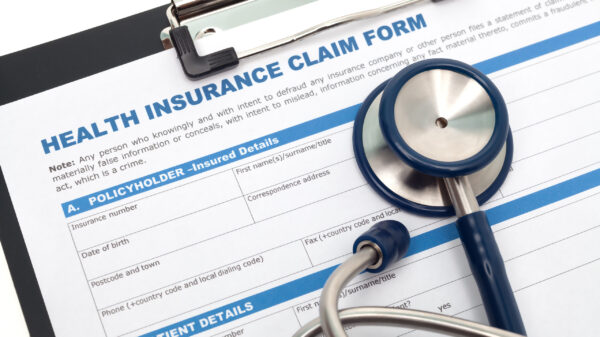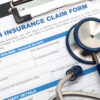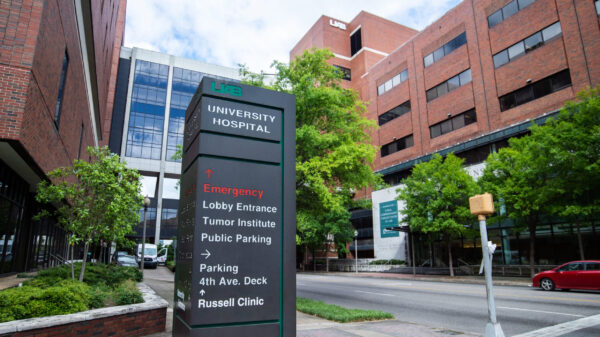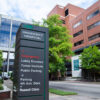UAB Hospital put out a rare emergency statement Tuesday pleading with the public not to seek out COVID tests by visiting emergency rooms, which are seeing record numbers of COVID patients.
“People want to be tested, but emergency department is probably the worst place to go just to get a test,” said Dr. Don Williamson, president of the Alabama Hospital Association, during a COVID briefing on Tuesday. “You’re going to be there longer. If you’re infected, you may expose other people. If you’re not infected, sitting in a waiting room, you may get exposed.”
Williamson encouraged those who want to be tested to ask their physician’s office, go to a county health department or a pharmacy that is conducting testing.
Alabama State Health Officer Dr. Scott Harris said during the briefing that unless a person is sick enough to be seen in a hospital, they should not visit an emergency room to be tested for COVID.
“If you think you might need to be in the hospital, or your doctor thinks that, then by all means, you need to go to the hospital,” Harris said. “But if you just need a test, or a test for travel or you just have a sore throat and think you need a test, please don’t go to the hospitals. they have a lot going on right now.”
UAB Hospital in a statement asked that those who are experiencing non-life threatening COVID symptoms, including a sore throat and stuffy nose, to please stay home.
“Consider contacting your primary care doctor or an urgent care clinic if you need medical care for cold symptoms or non-life-threatening COVID symptoms,” UAB’s statement reads.
UAB Hospital on Dec. 14 had 16 COVID patients, and a week later doubled that to 35. The hospital doubled that number again the following week, reaching 62, then a week later, on Tuesday, doubled again to 124. Of those 124 patients, 85 were not vaccinated, according to UAB.
The COVID situation in Alabama is getting more dire by the day, Williamson and Harris explained, as the more contagious omicron variant continues to drive new cases.
A month ago Alabama’s seven-day average positivity rate — or the percentage of COVID cases that are positive — was 5.4 percent, and on Wednesday, was a record-high 41 percent.
{{CODE3}}
Williamson said a month ago Alabama recorded 595 new cases in a day, and on Tuesday saw 7,572 new reported cases.
{{CODE4}}
“That is a 12-fold increase in cases in one month,” Williamson said. “And for people who think this is simply a common cold, 324 people have died from COVID in the last month.”
Alabama’s COVID hospitalizations are rising quickly as well, Williamson explained, growing from 305 people hospitalized a month ago to 1,249 on Tuesday, a 309 percent increase.
{{CODE2}}
Omicron appears to cause less severe illness in some, but Williamson and Harris cautioned against taking chances with the variant.
“While it may be less severe on a population basis for an individual, you don’t know whether you’re going to be in the group that stays out of the hospital and stays out of the ICU, or whether you’re going to end up in the ICU,” Williamson said.
“A month ago we had about 95 people in the ICU. We now have 229, so we’ve doubled the number of people in our ICU,” Williamson said. “We’ve increased by 45 percent the percentage of people on ventilators.”
Nearly 70 percent of those hospitalized with COVID in Alabama on Tuesday were unvaccinated, Williamson said, encouraging the public to get vaccinated and receive booster shots, if eligible.
{{CODE1}}
“But then on top of all of that, you cannot get infected if you do not get exposed, so I just would encourage people think before you go into a large group indoor gathering. Decide is it really worth coming down with COVID because you went into a large indoor gathering?” Williamson said.
For those who do decide to go to an indoor gathering, Williamson said they should wear a mask.
With schools reopening this week and vaccination rates for school-aged children in Alabama extremely low, Williamson said he is concerned about the possibility of increased cases among children “and then back-spread potentially to their parents and grandparents.”
“We still strongly support universal masking in all our K through 12 schools,” Harris said. “We strongly urge parents to have their children vaccinated as soon as they possibly can.”












































